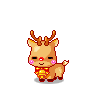I disagree on the last part, I wouldn't call it being a "koreaboo", at least when it comes to translating media - it's totally different if one uses it in real life though, ofc.
English doesn't have the cultural element of calling someone a sister/brother unless you either really have a sibling relationship with them (no matter if blood-related or not), and when translators do translate the terms directly, you're left with soooo many confused readers, unless they are aware of korean culture/the cultural background and where these terms are translated from. It's much easier to understand that it refers to a close bond, not just a familial one, when they leave the terms in Korean and don't directly translate.
Of course, sucks when they misuse the terms, but that's MTL for you ╮( ̄▽ ̄)╭
I'm always a huge supporter of increasing people's cultural awareness, and imo this is one of them. It's not weird to use them in translated media. Of course, again, it is weird if you use it in real life, especially if you're not korean or in korea - same reason why I find it weird when people use "fujoshi/fudanshi" outside of japan, even in these online comment sections (which are often in english). Again, translated media is different, as without the specific media the words lose their cultural context and simply look out of place/strange.
Hell, I remember a decade ago when Hetalia fandom was having issues regarding the ship between Norway and Denmark, because translators kept translating what the former used for the latter as "big brother", making people think they were biological brothers rather than the term being used to signify a close bond, similarly to hyung.
So thanks, I'd rather have the characters refer to each other as noona/unnie/hyung/oppa especially with romantic pairs, rather than see the english big sister/big brother ╮( ̄∇ ̄")╭


the korean.......if you wanna use the korean word instead of translating it to "sister" like all the other words, at least use the correct form...